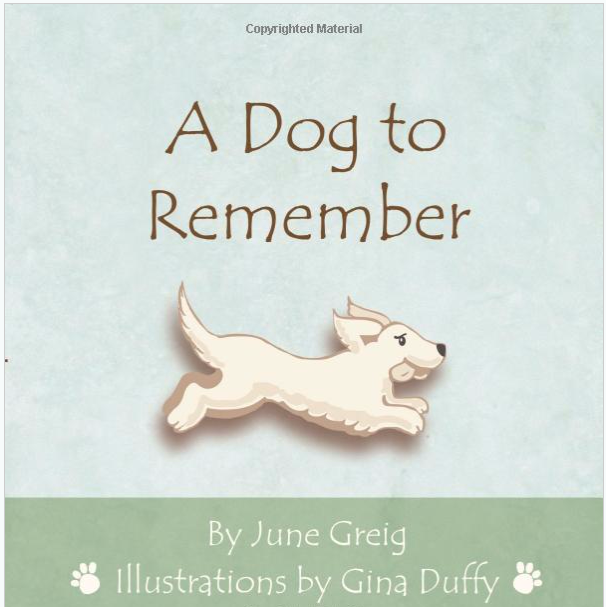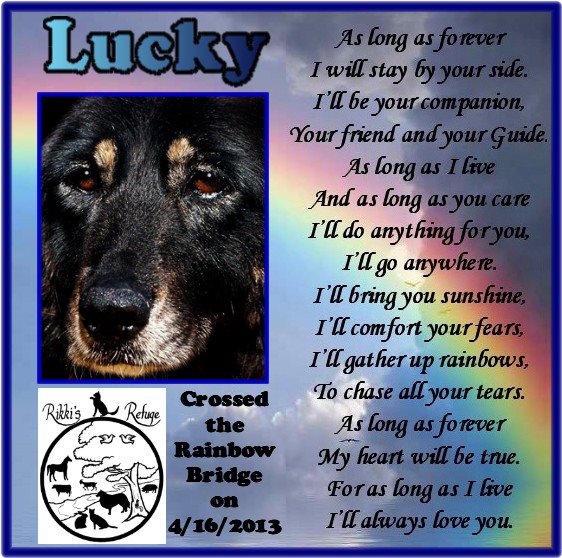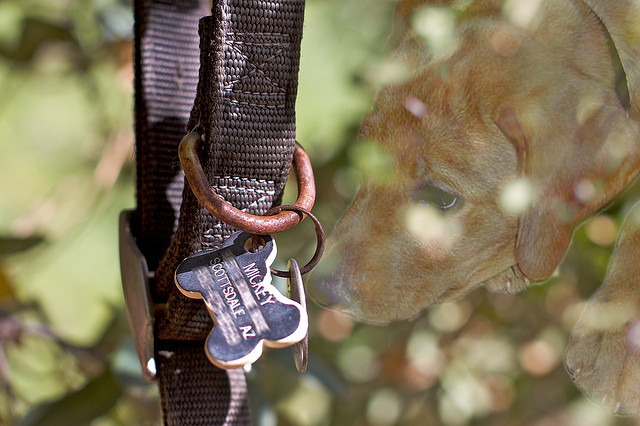
I’ll never forget the first dog that was truly “mine.” We had always had family dogs, but on my twelfth birthday I got Bear, a brown bundle of Aussie cuteness. When we had to make the decision that it was “time,” it was one of the hardest things I have ever done. I couldn’t go with my mom to the vet’s office. Every year, I call her on January 22, Bear’s birthday. We don’t say much, but it’s our way of remembering him.
Some of you may be wondering if this is normal, I wondered if this is normal too.

The grief June Greig experience after the loss of her dog Bailey in 2008, led her to write a gift book to comfort others who had lost a beloved dog. That, in turn, led her to become a pet loss counselor. .
Even after they are gone, our dogs still affect our lives.
We asked her a few questions about mourning the loss of a beloved dog.
Many claim losing a pet is the hardest thing they have ever done. Why is it so hard?
Losing a pet can be the hardest thing many people have experienced because of the strong bond that develops. This kind of bond develops because owners provide for all of their pet’s needs, and may spend more time with them than they do with most people. The love pets give to their owners is unique. They appreciate the care they receive. They are never critical and are always happy to see them. It is nourishment to the soul.

When the pet dies, the silence is pervasive. There is no happy, tail-wagging greeting at the door, no pattering of paws, and the responsibilities to feed and walk the pet are gone. Those responsibilities make people feel needed and they are a big part of the daily routine. People often miss that routine. They also miss petting their dog, which can be soothing. All the love a pet gives that makes us feel so good is gone.
If you know the end is coming due to illness or any injury, are there things people can do to prepare themselves?
If the owner knows the end of their pet’s life is approaching, they can help prepare by reading books that will help them understand how to better care for their pet during this time, the decisions they may be confronted with, and the grieving process they will likely experience.

For example, many people may be confronted with having to decide whether to euthanize their pet. It is a very difficult, heart-wrenching experience. Although the veterinarian will likely initiate the discussion, based on the pet’s condition, it is important to discuss it with family members so everyone understands what may happen. This is especially important if family members want this to occur at home because not all veterinarians are willing to do that.
Are the steps for grieving a lost pet any different than using a human?
Understanding the grieving process is also important because people will experience stages of grief very similar to grief over the loss of a human. They may also be very sensitive at this time to anyone who tries to minimize their feelings because a pet is involved. Knowing beforehand that such sensitivity may surface can prepare the pet owner and lessen hurt feelings.
What are some ways to handle those who around you who don’t understand why you are so upset over the loss of a pet?
It is best for the person who is grieving to talk to other pet owners and people who have experienced the loss of a pet for support. Joining a pet loss support group on an online chat helps people connect with others who are grieving. Some patience and understanding is necessary when talking to people who do not understand why grief for a pet can be so intense. Brief conversations about it may be best.
What are some ways to help with the grieving process?
Some ways to help with the grieving process are: reading about pet loss; holding a memorial service and planting a tree or shrub; compiling a photo album of your pet and writing memories to include in it; donating to an animal foundation or rescue group; and posting a memorial with your pet’s photo on an online pet bereavement site.
For others, surrounding yourself in keepsakes or pet memorials helps keep their memory alive.

It helps while grieving to remove toys, bowls and other reminders and store them or give them away, and to try to alter your daily routine. Visiting friends, taking a vacation, or enrolling in a class to get out of the house more can be helpful. It may be comforting to pet a friend’s dog.
I think about my lost dog every year on his birthday, my mom and I both do, and I am sure other dog owners do the same. Is that weird?
No it is not weird at all! It is not unusual to remember your pet the same way you would any loving member of your family. All the love and memories shared with your pet stay with you forever.
If support is needed, how can someone find a counselor like you to speak with?
The Association for Pet Loss and Bereavement is a great resource for people looking for pet loss support. The online site has a chat room and list of pet loss support counselors. The founder of the site, Dr. Wallace Sife, is the author of “The Loss of a Pet,” a book about how to cope when a pet dies.
In addition to searching pet loss support groups online, veterinarians and animal welfare organizations can usually refer people to a support group or pet loss counselor.
medianet_width=’600′; medianet_height= ‘250’; medianet_crid=’492590824′;
